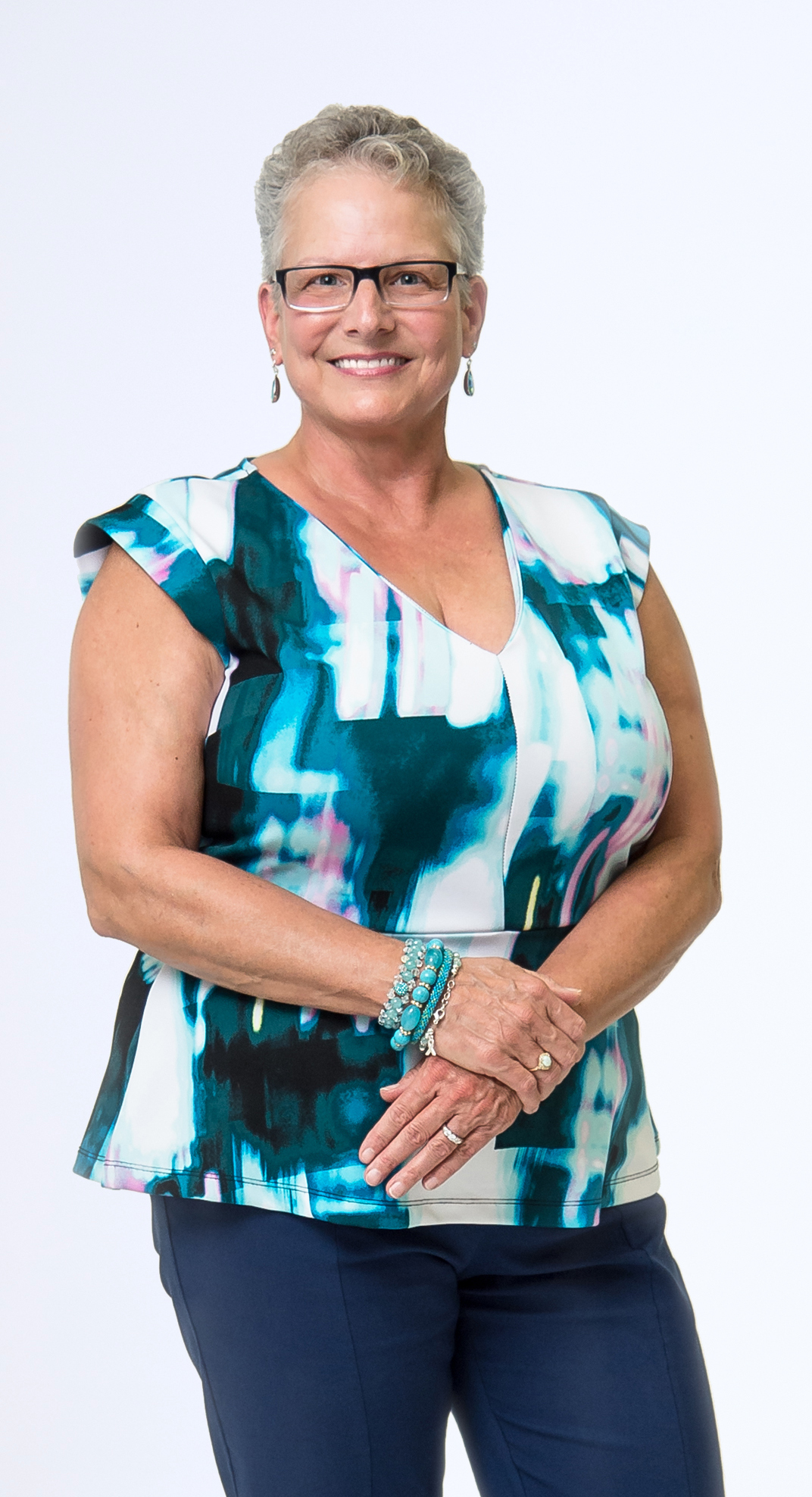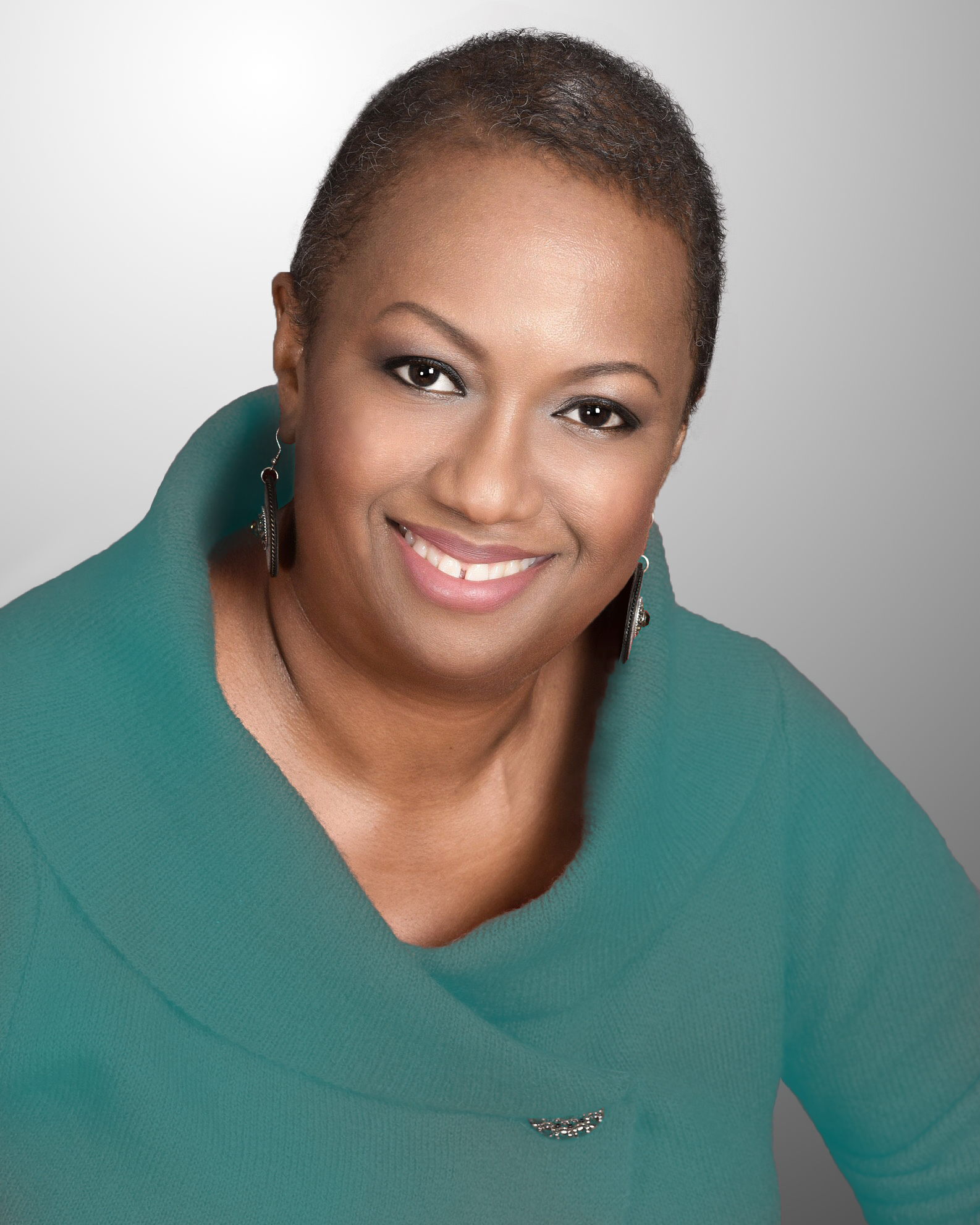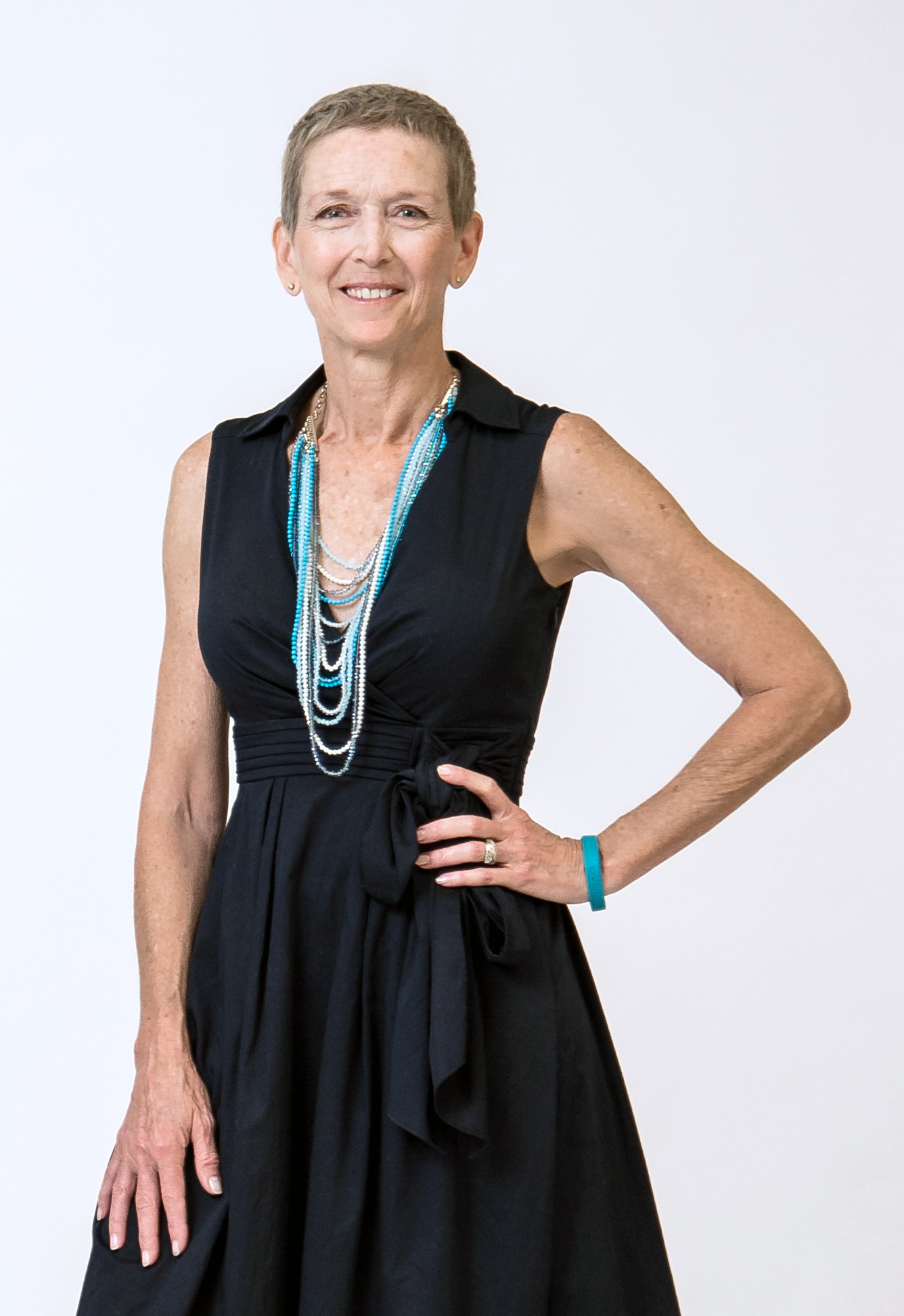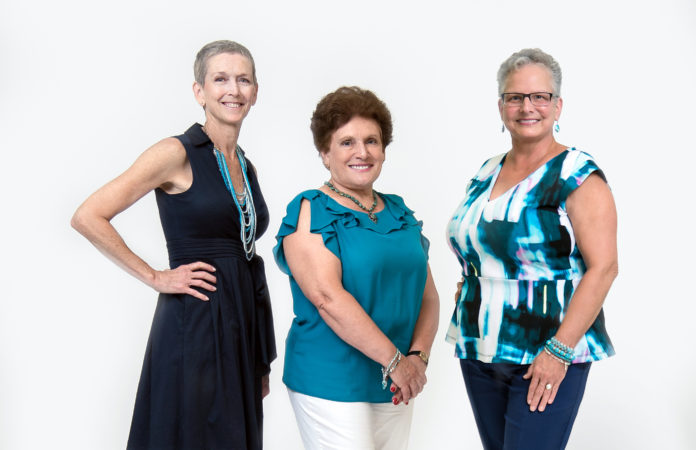The facts are simple: all women are at risk. Ovarian cancer is the fifth leading cause of cancer-related deaths in women, and an estimated one in 75 will develop the disease within her lifetime.
The most troubling part of ovarian cancer is the diagnosis, or the difficulty of diagnosis. With no reliable screening method and symptoms that are often either misdiagnosed or extremely vague – such as constipation, fatigue, and bloating – it’s hard to catch ovarian cancer in its infancy.
The National Ovarian Cancer Coalition (NOCC) reports only about 20 percent of all cases are detected early, meaning in stage 1 or 2. Unfortunately, when caught in advanced stages like 3 or higher, the survival rate can be as low as 28 percent.
This month, we’re here to tell the stories of four women who are a symbol of hope and progress – four women from your local community, who are beating the odds each and every day, despite the numbers.
Robin McGolrick
 When I spoke with Robin, 55, of St. Mary’s County, a wife and mother of two grown children, she was in the middle of making caramel popcorn to raise funds for the upcoming NOCC Walk/Run this September. “I love to cook and bake, and I’m happiest when I’m in the kitchen. I enjoy making unique treats and giving them to my family and friends.”
When I spoke with Robin, 55, of St. Mary’s County, a wife and mother of two grown children, she was in the middle of making caramel popcorn to raise funds for the upcoming NOCC Walk/Run this September. “I love to cook and bake, and I’m happiest when I’m in the kitchen. I enjoy making unique treats and giving them to my family and friends.”
Held annually in Annapolis, this will be Robin’s fourth year participating. “Having ovarian cancer threw me into the role of advocate,” Robin said, mentioning that her team is participating this year by holding a local walk in Hollywood, MD.
While Robin has always loved baking, it wasn’t long ago her hobby began supporting a new cause. In October 2012, Robin experienced abdominal pain that felt similar to menstrual cramping. Worsening over time, she eventually went to the doctor. After several tests including a transvaginal ultrasound, MRI and CT scan, just before Christmas she received a diagnosis of stage 3C ovarian cancer, meaning the cancer was in both ovaries and had spread within her abdomen. “I was 50 years old, physically fit, and overall very healthy. I rarely got sick, so this devastating blow seemed to come out of nowhere. I never expected to receive a diagnosis of cancer.”
Once Robin began learning more about ovarian cancer, however, she realized she had been experiencing symptoms – gas, constipation, menstrual changes, frequent urination – she just didn’t recognize their significance. Robin had gone to her gynecologist for an abnormal menstrual period, which was attributed to menopause, as was her need to urinate often. “I had persistent gas, an issue I never even thought to discuss with my doctor.”
In January 2013, Robin underwent surgery to remove her multiple aggressive tumors, followed by chemotherapy and radiation. She received six rounds of IV treatments every three weeks, and one internal radiation treatment, lasting about eight months in total.
Robin began seeing her oncologist every three months, and when her cancer returned in September 2015, the focus of her treatment changed from curing the disease to managing it. “It’s not curable; the goal now is to help me live as long as possible.” Robin underwent surgery and chemo again, and is now doing well. “Although the odds are against me, I believe in miracles.”
One of the most striking takeaways from Robin’s entire ordeal is the importance of education and awareness. “When I was first diagnosed I was afraid to know too much. After my recurrence, I did a lot of second-guessing about that, especially after learning about some variations in treatment,” she said. “I had regrets about not seeking treatment sooner. Perhaps if I had been aware of the symptoms, I would have acted sooner or been more concerned.”
Robin hopes her story will help women to learn from what she missed: the seriousness of her combined symptoms, and to debunk the myth that an annual well-woman exam with no complications means you’re safe; the Pap test does not detect ovarian cancer, it determines cervical cancer.
One of her biggest challenges, she says, is trying to keep a positive outlook and not worry too much. “I took for granted that I would live a reasonably long life – long enough to retire, to have grandchildren, to travel. It’s hard on your family and causes them a lot of sadness and worry; I hate that they have to go through that, too.”
Today Robin lives her life with more gratitude than ever before. “I try to be more present in life. I’m working to increase my faith, hope and my courage. Thankfully I haven’t taken this journey alone. The love and support from my family and friends has been tremendous, and I feel truly blessed in that respect.” Robin noted the outpouring of support she has received from family and friends as part of her recovery. “If it weren’t for cancer, I would have no idea how loved I am. That really keeps you going.”
Maria DiPietri
 Ten years ago, Maria, 70, of Anne Arundel County, attended a woman’s wellness conference hosted by the National Ovarian Cancer Coalition with her daughter, who was volunteering. “I thought, what is this? This will never happen to me,” she said. “I just went because my daughter was there.”
Ten years ago, Maria, 70, of Anne Arundel County, attended a woman’s wellness conference hosted by the National Ovarian Cancer Coalition with her daughter, who was volunteering. “I thought, what is this? This will never happen to me,” she said. “I just went because my daughter was there.”
Three months later, Maria received the shock of her life when she was diagnosed with the exact disease she had just dismissed. Initially having pain in her lower abdomen, Maria thought she had appendicitis and went to the hospital, at first to no avail.
During her third time in the ER, a CT scan revealed two large masses in her ovaries. She was diagnosed with borderline Ovarian cancer, stage 1, and was scheduled for a hysterectomy on her 60th birthday, after which she spent nearly eight weeks in recovery.
“Because of my knowledge and connection to the volunteer work of NOCC, we went straight to the cause of the problem rather than thinking it was something else like a lot of women,” Maria said. “The symptoms were there –bladder discomfort, feeling full without eating much, bloating, fatigue and back pain.”
At first, she kind of overlooked the signs, but it was the combination of symptoms, she said, that made her realize what was going on. “I’m one of the lucky ones,” she said. “Being aware helps, and every woman should pay attention. Some people go years without realizing the problem.”
All wasn’t smooth sailing for Maria, however. “There were a lot of emotions at first, like denial,” she said. But it was the support of her family, friends, and even her co-workers, that kept her positive.
To every woman, she stresses to be attentive. “I hope they find a cure, but in the meantime, take care of yourself. You know better than anybody else what is going on with your body. If there is a problem, pursue it. Get help and find the right doctor.”
Denise Rouse
 Denise, 55, of Washington, D.C., has always had problems with her menstrual cycles. Diagnosed with fibroids at 28 prior to the birth of her first daughter, she had surgery immediately after. Returning again after her second daughter, she began taking Depo Provera, a hormone injection shot to control the side effects. “It was wonderful and I was on it for a while, and then I started naturally going into menopause.”
Denise, 55, of Washington, D.C., has always had problems with her menstrual cycles. Diagnosed with fibroids at 28 prior to the birth of her first daughter, she had surgery immediately after. Returning again after her second daughter, she began taking Depo Provera, a hormone injection shot to control the side effects. “It was wonderful and I was on it for a while, and then I started naturally going into menopause.”
With the struggles of her 20s and 30s in the past, Denise thought she was in the clear, until one morning in December of 2015. “The best I could describe it is that it felt like my organs were being compressed,” she said. “By the end of the week I was so uncomfortable I could barely function.”
Her doctor ordered a sonogram, and then a CT scan – the first red flags of many, she said. “I went to the emergency room and the Physician’s Assistant (PA) told me I had stage 3B ovarian cancer, and then she broke down in tears.” Confused, Denise asked the PA if she knew someone who had cancer, and she said yes – her mother – but she’s okay now. Denise said, “Well, I’m glad she’s okay, and I’ll be okay, too.”
Strong on the outside, Denise said she felt vulnerable in a way she never had before. “Women, friends, family came alongside me to support me in ways I didn’t even know I needed. This young lady who was doing her job carried some of the weight for me.”
Soon, Denise’s tumors were secreting fluid, filling up her abdomen. After having her abdominal cavity drained, she began chemotherapy on Dec. 31, with treatments every three weeks. In March, Denise had surgery to remove three tumors and seven organs. “Everything that’s left inside of me is what I need to stay alive.”
She began recovery followed by a second round of chemo just six weeks later. Denise was declared cancer free in July, but the disease returned by February of 2017. Her year continued to test her, as both her mother and sister died suddenly in the following months.
But Denise is the epitome of a fighter, and by July of this year, she was back in remission, both mentally and physically. This time around, Denise takes an estrogen blocker pill every day, as her tumors are fed by estrogen. In describing the process of recovery, Denise explained how much the cancer changed her life.
A life-long organizational development consultant, Denise was unable to work during treatment due to extreme fatigue. “I was wiped out from treatments, I would sleep all the time, wasn’t hungry – I felt like a weight came down over my entire body. I thought, ‘how can I be productive when I’m sleeping 14 hours a day?’” she said. “It was a challenging component, which allowed me a lot of time to think and pray. Faith has carried me through. I was forced to be still, and I started to see very clearly where God was going to use me, so I was grateful for the time in some ways.”
In trying to redefine her daily routine, she’s now working on her life coaching certification to help other women who are going through this disease. “There were times when I felt like I was the only one, but I knew in my heart that was a lie,” she said. “There’s not nearly enough emphasis into cancers that are truly women’s cancers. There’s a void in our research and a void of support in our community for women [with ovarian cancer].”
Sharing her wisdom with others, Denise wants those diagnosed to know the importance of finding a good support system. “Hopefully it’s friends and family, but if they’re not giving you what you want, reach out to one of the associations in order to get guidance, love and support. Don’t be afraid to go to coaches; they can help put everything in some semblance of an order for healing.”
Denise reminded me there are always creative ways of embracing your situation. “I used to have tiny lock [extensions]. When I was diagnosed I said, ‘I don’t have a problem with being bald, but I’m not wearing a wig’.” Denise told her friend she couldn’t figure out how to go from a woman with hair, to a woman without hair.
The solution? Her friend said to make it a celebration instead. Denise invited over her closest circle of friends and family, and had her hair dressers cut her locks and shave her head, completing the festivities with a beautiful henna tattoo on her newly, smooth scalp.
“You’re going to have some up days and down days, and you’re going to feel sick, but you’re still going to be who you are. Life isn’t over when you’re diagnosed with cancer. Life continues. And you have to continue to live it. It just looks a little different than it did before you went into the doctor’s office.”
Denise plans to have a series of focus groups this fall with women at various stages in their journey and with various types of cancer. Women who would like to connect with Denise can reach out to her at gynecologicalcancercoach.com.
Anne Granum
 Anne, 60, of Fairfax County, was a businesswoman in Northern Virginia who sold biomedical equipment services for a living, traveling all the time. “I worked nearly 60 hours a week and loved it.”
Anne, 60, of Fairfax County, was a businesswoman in Northern Virginia who sold biomedical equipment services for a living, traveling all the time. “I worked nearly 60 hours a week and loved it.”
In February 2015, she began feeling a bit run down, but attributed it to all of her traveling. At one point, Anne also had abnormal menstrual bleeding (spotting). Being postmenopausal, she thought this was odd and went to the doctor to get it checked out, however, they said she looked fine.
Fast forward to an evening in early April, and Anne was in excruciating back pain. “Prior to that I had a lot of problems with constipation, bloating, going to the bathroom all the time, but I thought those were post-menopausal side effects. I thought I just pulled a muscle.”
Initially visiting the ER while on travel for work, the hospital believed she was passing kidney stones and ordered her to go home. Once back in Fairfax, she returned to a different ER with her husband, Clay. This one said her abdomen was flooded with cancer. “We were devastated.”
Anne received an official diagnosis of stage 3C ovarian cancer, meaning it had spread to her omentum, the fatty tissue that supports the intestines and organs.
She had immediate surgery to remove her appendix, gall bladder, part of her colon, ovaries, fallopian tubes, and uterus; a procedure she described as being “permanently de-gutted.” Anne spent six weeks recovering before she started 18 rounds of chemotherapy.
By July she showed no evidence of the disease, but began feeling run down again that following May. “Three weeks later it was very evident because my lower back pain returned, big time.”
In testing her CA125, an ovarian cancer antigen blood marker, her numbers were off the charts. The normal value for a healthy individual is around 20 U/mL. Her numbers were more than 2,000.
Anne began chemo again and her CA125 dropped. “Three months ago I completed all of the chemo and my CT scan was good. Unfortunately, because it’s a recurring disease, they told me I was going to have to be on chemo for the rest of my life.”
Anne had to go on full disability and couldn’t work. “I’d been the breadwinner for my family,” Anne said. “It was a huge loss to me.”
In July, Anne also suffered from a bowel obstruction caused from scar tissue. Fortunately, it cleared within 24 hours. “I was lucky and discharged. A lot of women who have ovarian cancer and then a bowel obstruction need surgery and could be in the hospital for weeks, risking sepsis.”
In fact, the future continues to look brighter thanks to a new chemo pill fast-tracked by the FDA this past March, called Zejula (Niraparib). Anne now takes this medicine to keep the cancer from recurring.
Anne recently partnered with Donald and Rita Anderson, owners of Positive Image Salon in Springfield, VA to host a very successful fundraiser for the NOCC and raised $800 for research.
“The biggest thing for me has been trying to keep a positive attitude. I spend a great deal of time now trying to create awareness and raise money for the NOCC, and participate in the walks. People are very supportive, however, it’s not talked about that much, like a quiet secret still.”
Anne got involved in a group of “ovarian sisters” on Facebook, and has participated in free counseling at various cancer treatment centers. She also spent time taking care of her grandkids. “When I took care of my grandbabies, my blood work improved, and nobody can explain that. They were very healing.”
Today, Anne feels great and her quality of life is much better. Looking back, however, she wants other independent women like herself who are diagnosed to realize its okay to ask for help and take it when it’s offered.
“I had to go on disability, and I was very upset by this because I worked my entire life, but don’t be ashamed if that happens,” she said. “Also, have an advocate; someone who is by your side asking questions and taking notes. Do what the medical professionals tell you to do – don’t play around with this. Have an attitude that cancer isn’t going to take your life; be a fighter, but appreciate every moment you have.”
As hard as this journey has been on her, Anne says it has been even tougher on her husband. “Without Clay’s ongoing care, love, support, encouragement and advocacy I don’t know if I would have survived. And, the support of my grown children and their spouses made a huge difference as they constantly encouraged me to fight this disease.” Cancer affects everyone but is especially hard on those closest, who can’t fix what’s wrong.
_________________________________________________________________
September is National Ovarian Cancer Awareness Month.
Join the National Ovarian Cancer Coalition’s 8th Annual 5K Run/ 3K Walk to Break the Silence on Ovarian Cancer®
WHEN: Sept. 17, 2017 @ 7 a.m.
WHERE: Westfield Annapolis Mall
Register/Donate: runwalk.ovarian.org/annapolis Visit ovarian.org to learn more about ovarian cancer.











